Business leaders debate the future of organisations at Imperial
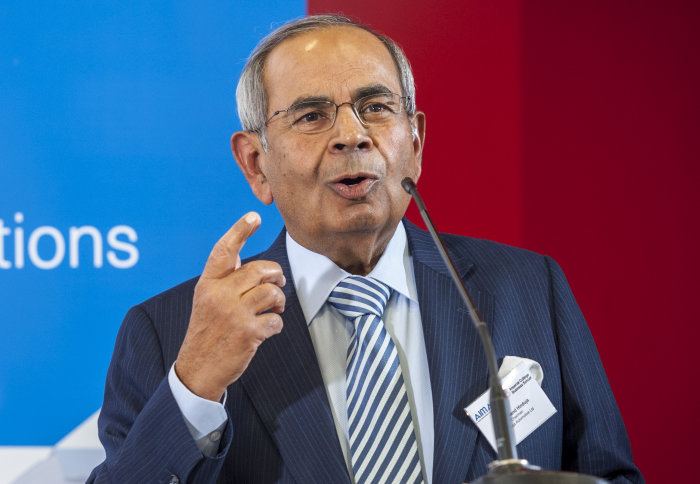
GP Hinduja, Co-Chairman of the Hinduja Group
Leaders from business, politics and academia debated the future of organisations at Imperial College Business School.
The second annual joint conference between the Business School’s Gandhi Centre for Inclusive Innovation and the All India Management Association (AIMA) attracted prominent CEOs and innovation experts from the UK and India.
Issues around privacy, the impact of automation on labour and protectionism were some of hot topics of debate.
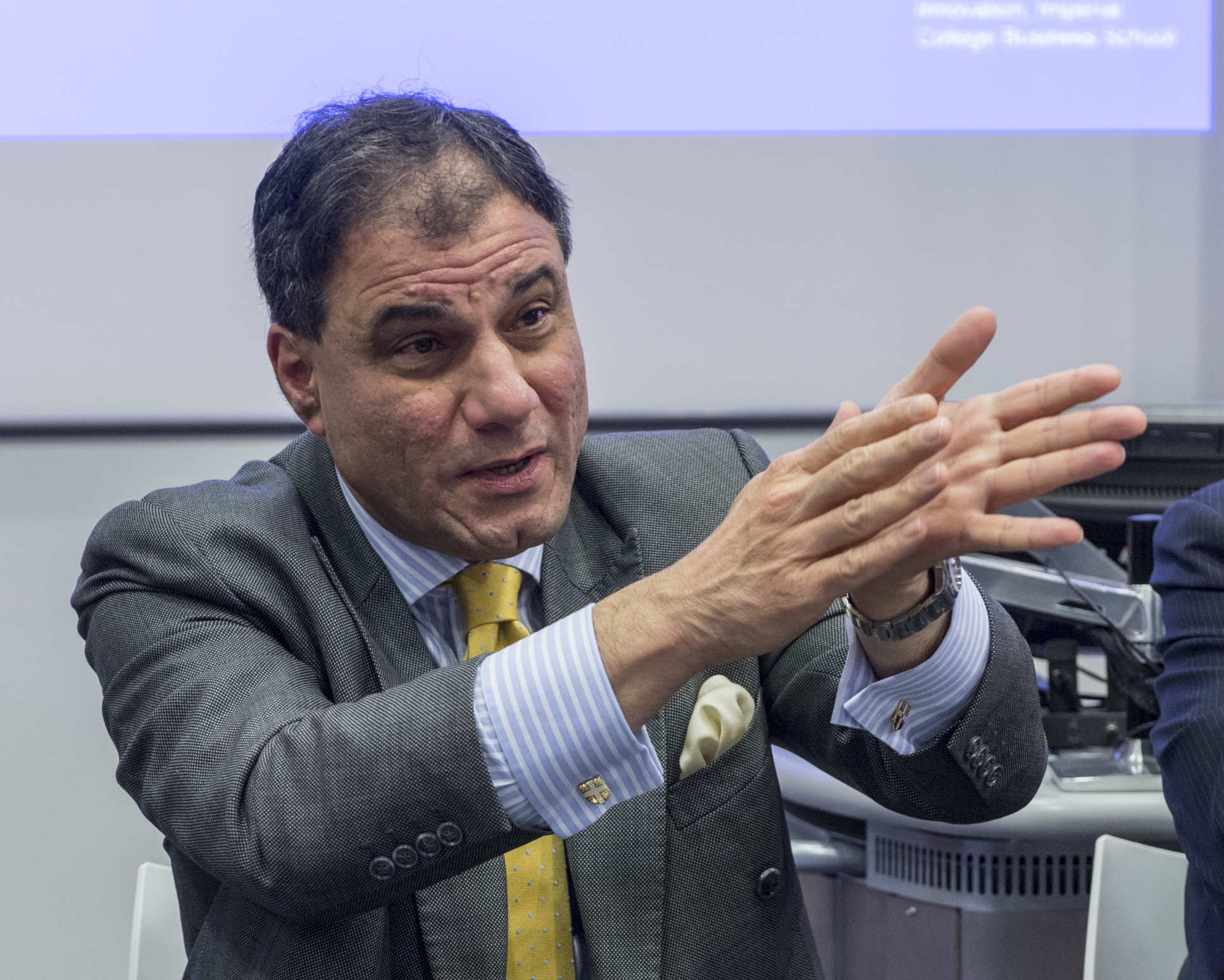
Speakers included GP Hinduja, Co-Chairman of Hinduja Group, India’s High Commissioner to the UK YK Sinha, Lord Karan Bilimoria, Chairman of Cobra Beer Partnership, and Baroness Sandip Verma.
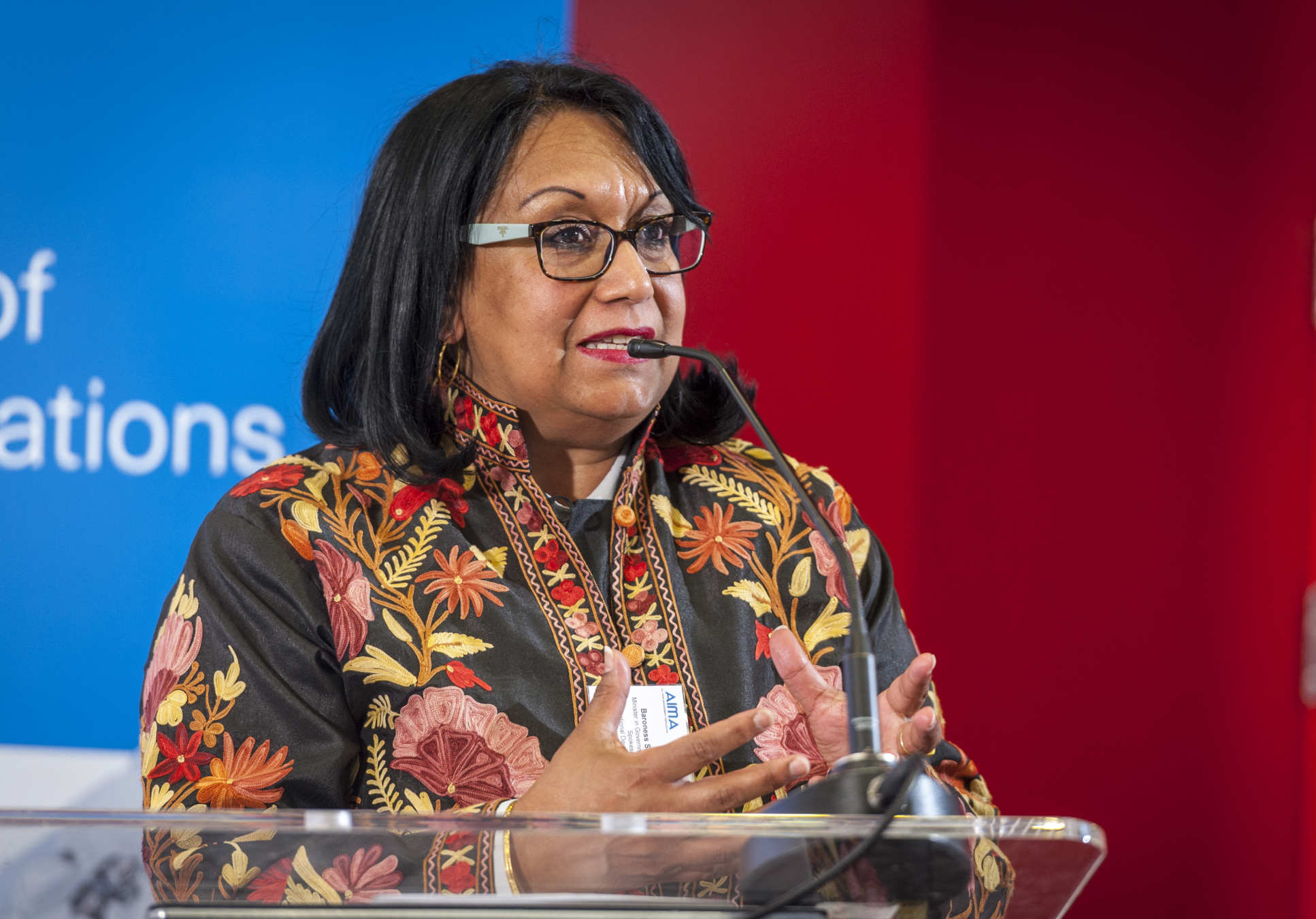
The conference shed light on the impact of digitalisation and artificial intelligence on methods of future trade, the role of government in planning and how advances in technology will affect social values.
A key organiser was Dr Sankalp Chaturvedi, who leads the Gandhi Centre for Inclusive Innovation and compered the summit.
Dr Chaturvedi said: “The world is changing, wherein technology, automation and artificial intelligence are creating disruption and becoming integral to growth and development strategies of new organisational forms.
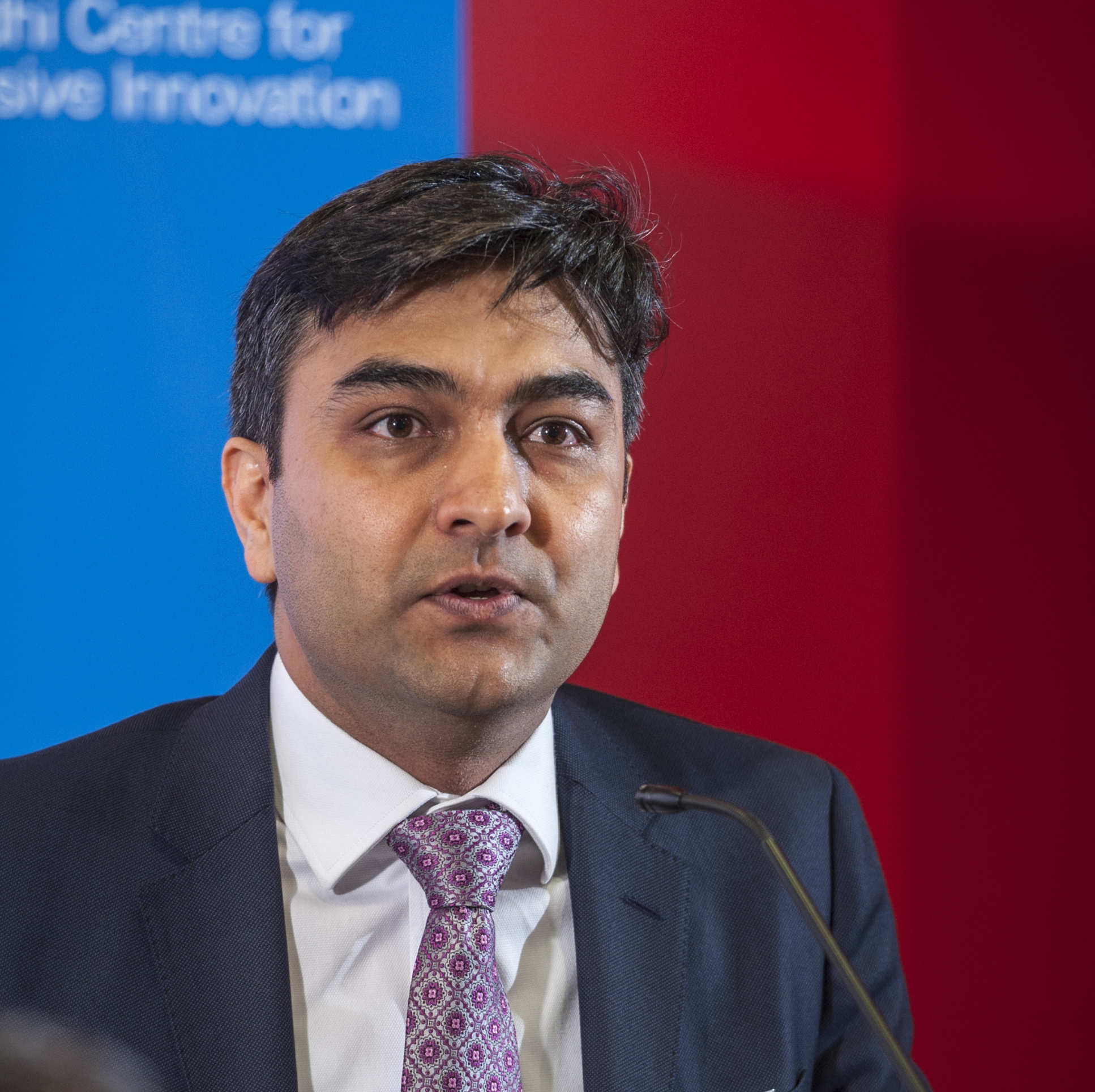
"Whether we talk about technology with business or reimaging global organisational relationship. Now, more than ever, we need to proactively think and consider several dimensions of these new forms of organizational evolution.”
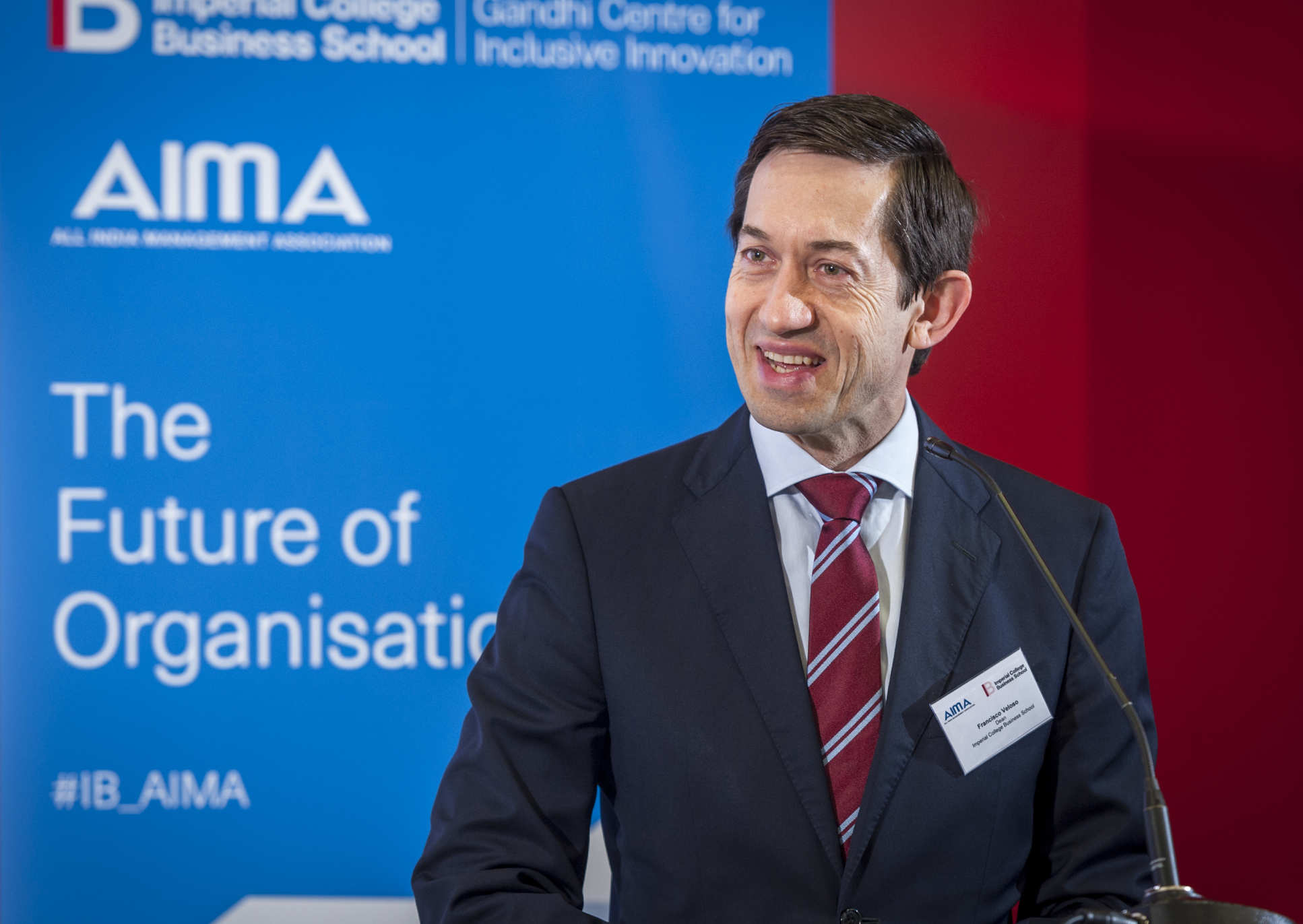
Dean of Imperial College Business School, Professor Francisco Veloso, opened the conference and spoke about Imperial’s warm ties with India and its academic collaborations.
Professor Veloso said: “Imperial College London is a leading international university, and our links to India are very important to us.
"Every year, we welcome dozens of students from India to our programmes, we develop cross-country research and enterprise projects, and we are very fortunate to have a variety of Indian faculty among our ranks.
“In 2013, the Business School developed a long-standing relationship with BML Munjal University. Since then, Imperial is providing assistance in forming, developing and growing the School of Management at BMU.
"This collaboration creates a strong platform for collaboration and immersion for students and faculty.
"But, more importantly, it is a leading example of Imperial College Business School’s commitment to be directly and locally engaged in the shaping of the next generation of leaders in India.”
Indian collaborations
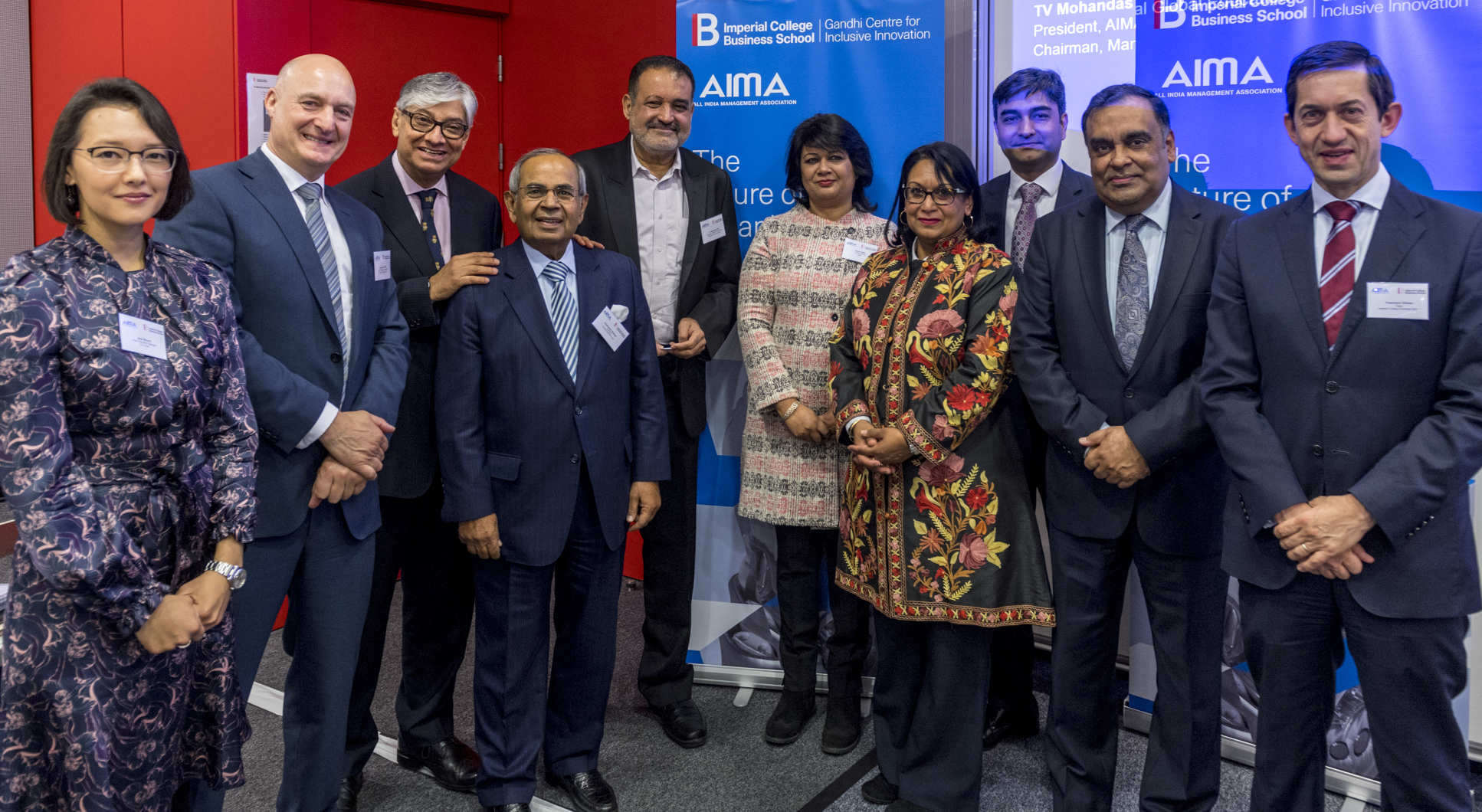 In the last five years, Imperial researchers have collaborated on more than 1,200 research papers with colleagues in India, including from IIT Delhi IISc, the Tata Institute for Fundamental Research, Panjab University, Delhi University and Visva Bharati University.
In the last five years, Imperial researchers have collaborated on more than 1,200 research papers with colleagues in India, including from IIT Delhi IISc, the Tata Institute for Fundamental Research, Panjab University, Delhi University and Visva Bharati University.
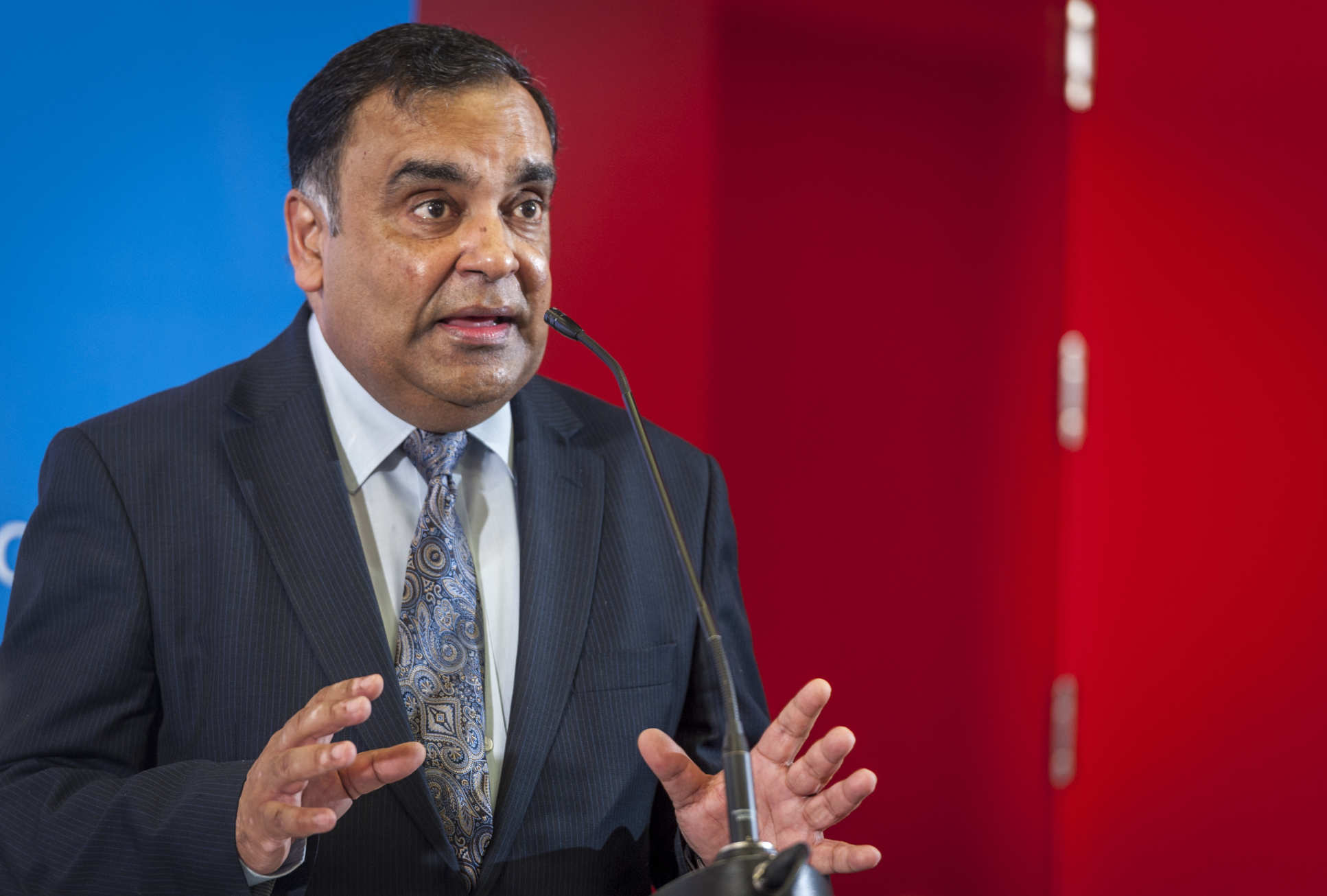
The importance of collaboration was stressed by YK Sinha, India’s High Commissioner to the UK.
YK Sinha said: “Collaboration between UK and India is particularly significant.
"What we forget sometimes is what’s happening across the board – whether it’s combatting malaria, developing solar batteries or creating a framework on cyber cooperation.
"This sort of collaboration will help our people prepare for the future.”
In a special address, GP Hinduja, said: "The best thing I learned is to adapt.
"If you have technology of adaptation, there is nothing better than that.
"The world is moving very fast in technology. Maximum disruption comes from data, AI, digitalisation.
"If you look at the economy and the top ten big companies, you will find eight of them are technology companies.
"This will keep on growing – what we have to learn is to adopt it and get used to new circumstances."
Impact of protectionism
Lord Karan Bilimoria, Chairman of Cobra Beer Partnership, spoke about the impact of conflict and protectionism on globalisation.
Lord Bilimoria said he didn’t think Brexit would happen. “We are at a crucial, pivotal moment in history at the moment. Protectionism is coming in.
“The UK became one of the most open economies in the world, with light touch regulation.
"But it was a wretched referendum – an absolute disaster. We’re one per cent of the world’s population but we’re the best in the world in areas such as finance, legal, universities and beer, despite being in the EU for 40 years.”
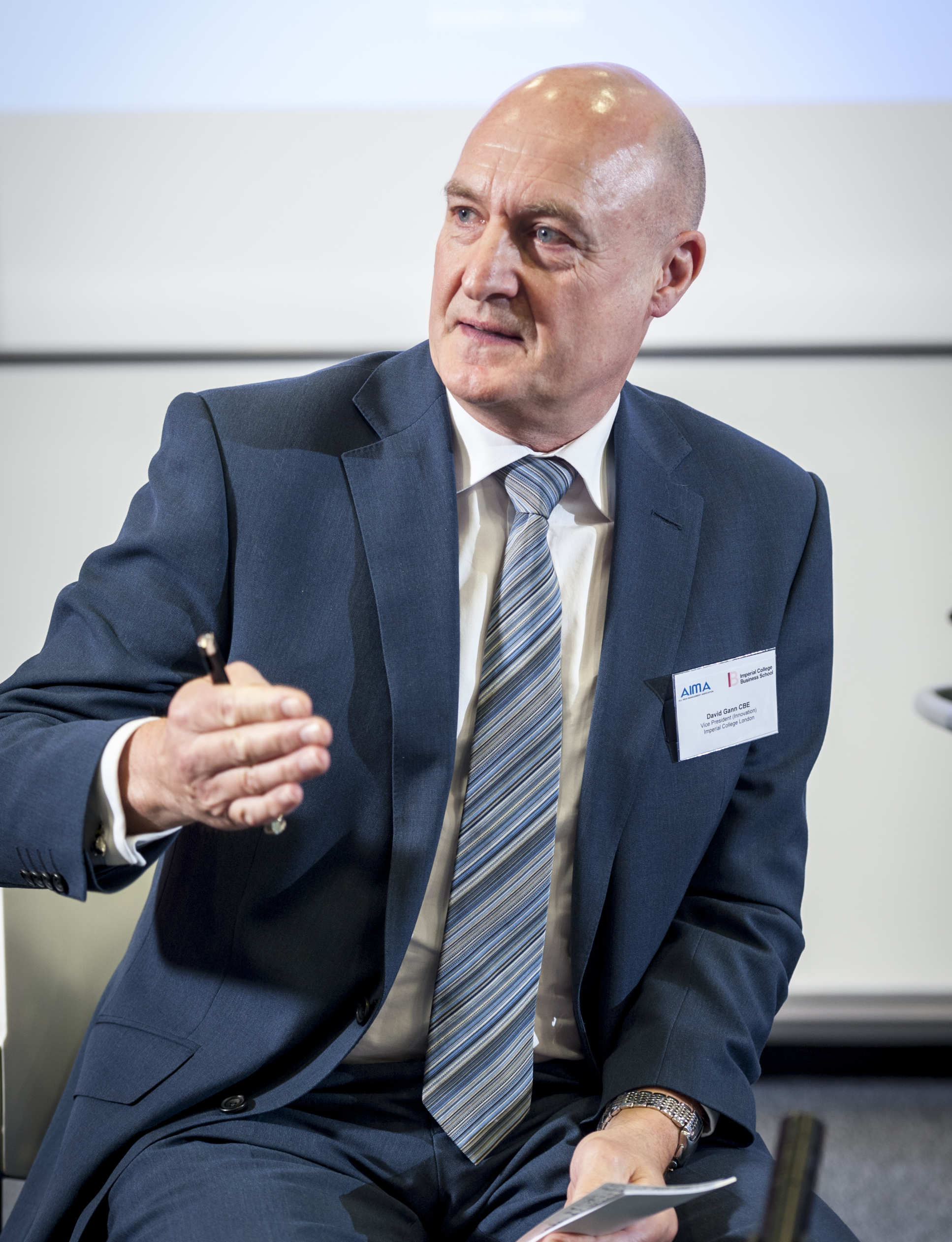
The panel ‘Disrupting the Organisation: Remodelling business with technology’ was chaired by Dr Mark Kennedy, Director of Imperial Business Analytics.
The panel included TV Mohandas Pai, president of AIMA, Jana Blount, Legal Innovation Manager at DLA Piper, and Imperial’s Vice President (Innovation) Professor David Gann.
TV Mohandas Pai, President of AIMA: “I think the world is going to be shocked by the pace of technological change over the next decade or so.”
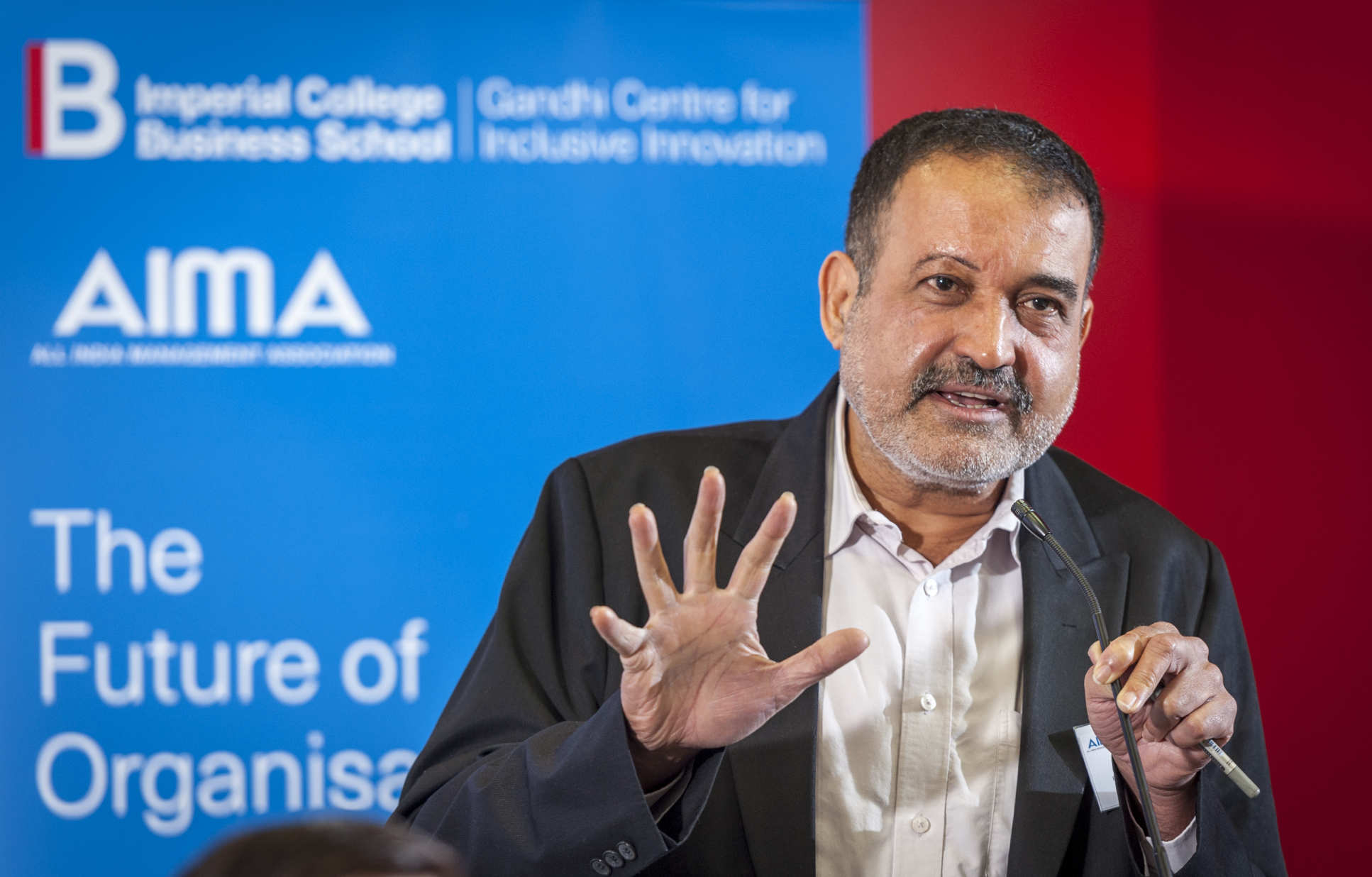
Speaking about pace of change, TV Mohandas Pai said: “We should accept that sometimes, pace of our growth and changes is outpacing ‘social’ and ‘ethical’ dimensions.
"And we are playing a catch up game - whether we are talking about the Facebook data breach or introduction of GDPR. Technology’s role is to enable us and make us efficient and not to control ‘humanness’.
"Currently, often we are coming up with reactive changes than thinking of growth ‘responsibly’ and ‘proactively’.”
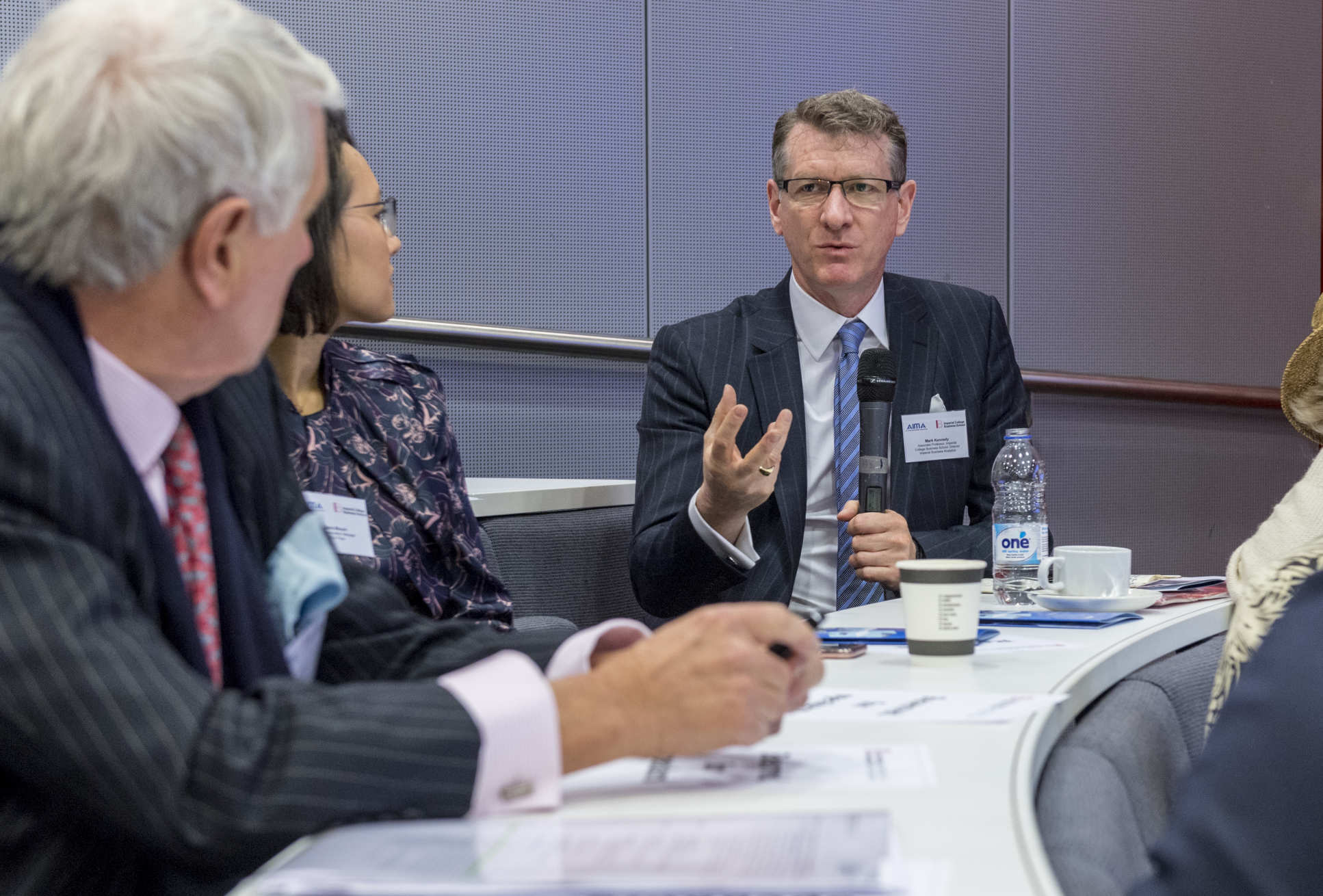
Imperial’s Vice President (Innovation) Professor David Gann is a world-renowned expert on innovation and chaired the Smart London board from its creation following the 2012 Olympics.
Professor Gann said: “Computing has successively cut the cost of using and managing data. The combination of a lot of data has brought AI out of the lab and brought into the health service, financial service and legal service.
“AI perhaps cuts the cost of gaining insight and there’s a Holy Grail of what we might like it to do and that’s provide predictiveness.
“In complex data sets we want to know which of us might fall ill from disease."
We are at a crucial, pivotal moment in history. Protectionism is coming in. Lord Karan Bilimoria Chairman of Cobra Beer Partnership
Baroness Sandip Verma, Chairperson of the European External Affairs Committee, spoke about the impact of recent political and privacy issues.
Baroness Verma said: “Recent dates have shown that if growth is too quick, Facebook’s lack of touch and use of what their data was able to do, is something they’re now facing serious questions on.
“The end user is ultimately not to be ignored. It’s the person who will keep an organisation afloat or break your organisation.
“Recent political landscapes also demonstrate that unless everyone believes they are sharing the success of economic growth then dissatisfaction filters through the cracks.”
Closing the event, the Gandhi Centre’s director Dr Sankalp Chaturvedi said: "I strongly believe that the key to adaptation and becoming good at it requires us to change our mindsets, being mindful of changes and make our thinking future-oriented.
"To accept disruption and technology willingly, we need ‘humanness’ to be part of the change and future."
Lively debate
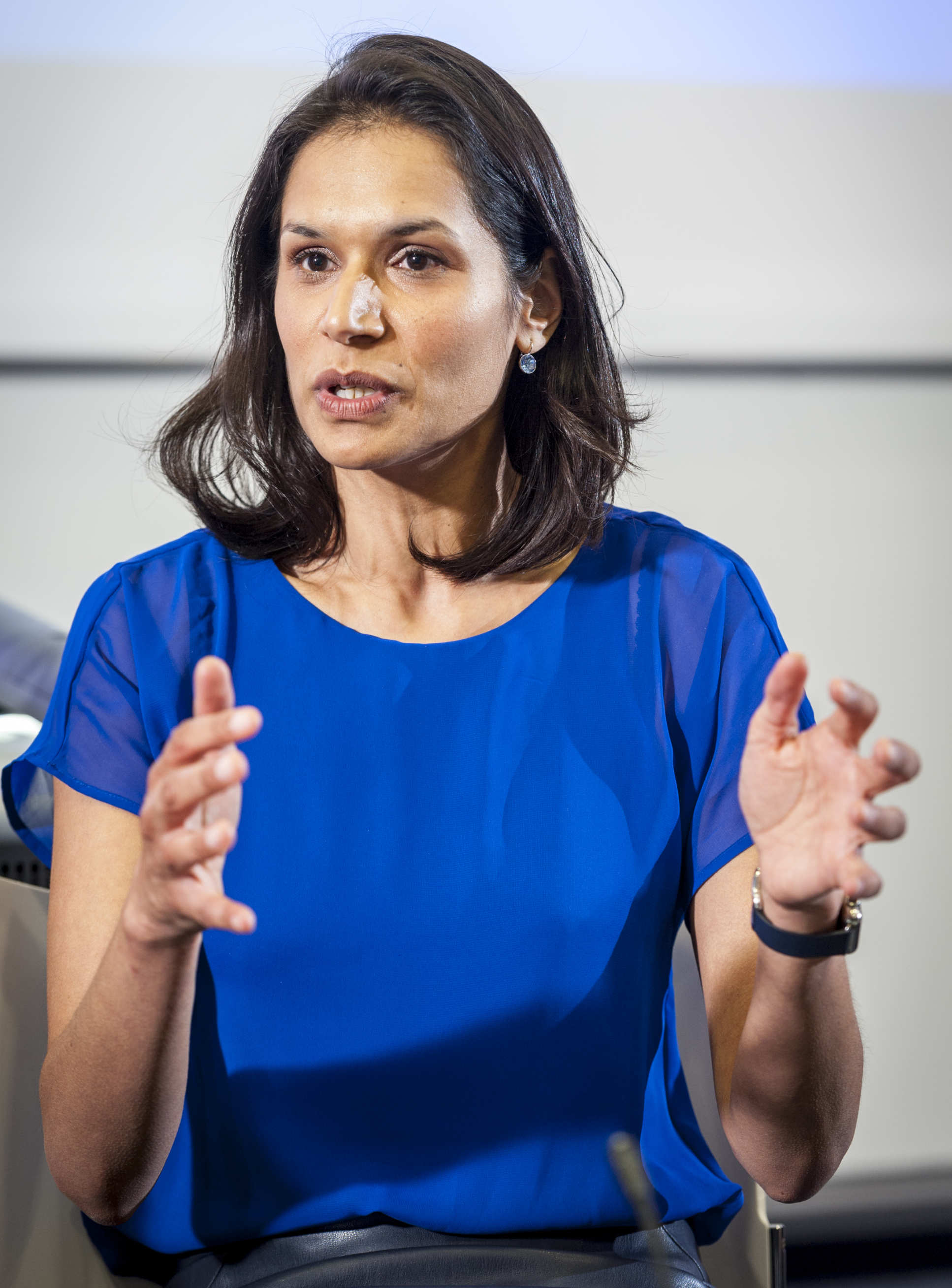
During the wide-ranging discussion, the audience and panellists covered topics including Brexit, Trump and populism, data privacy, corporate social responsibility, technological diversity and the future of the Commonwealth.
Jana Blount, Legal Innovation Manager at DLA Piper, reflected on the enormous growth in data that academics and businesses have access to now: “It seems as though we’re on a precipice... conceptually, everyone gets it. Everybody sees big data coming.”
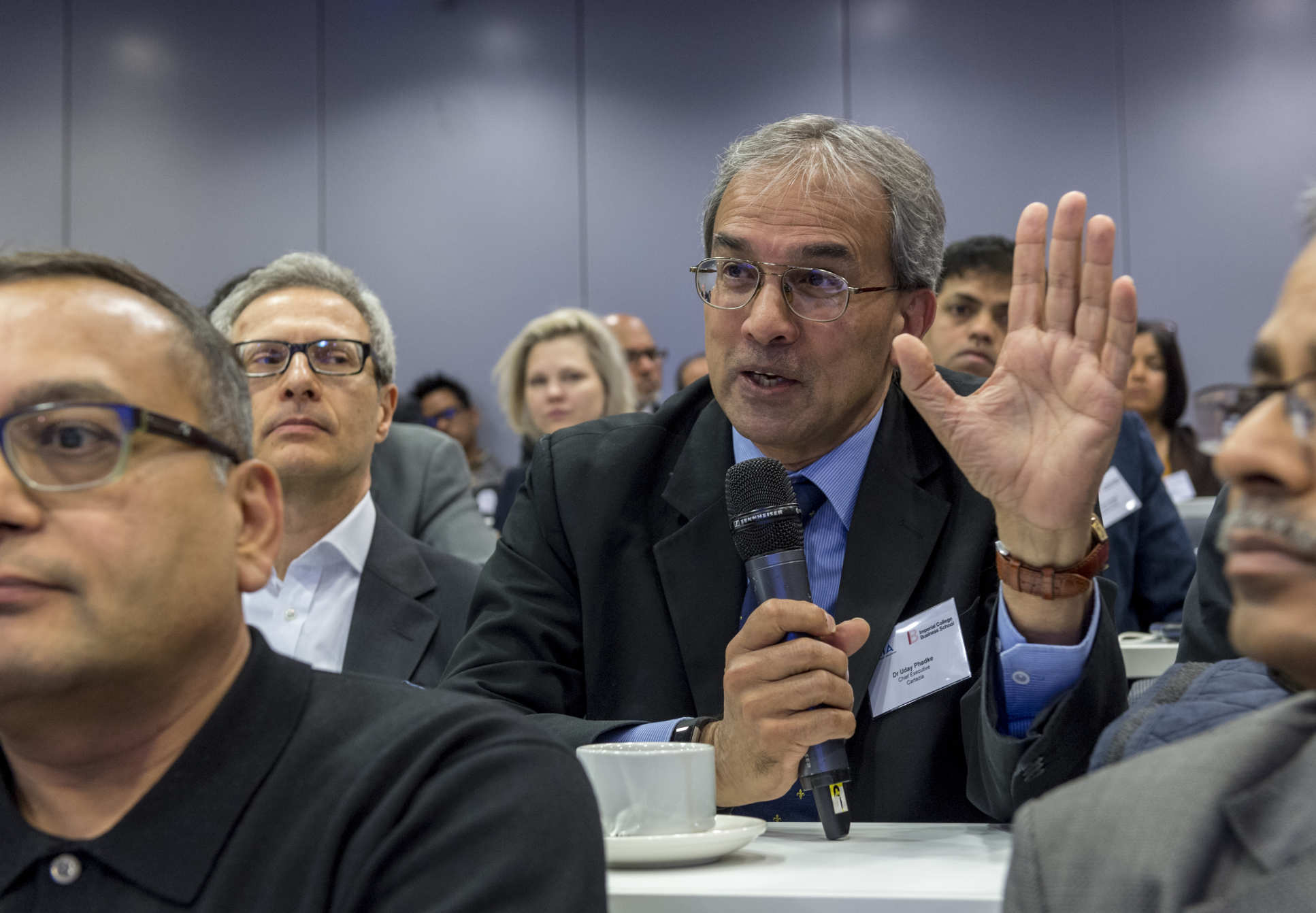 Daljit Bamford, Director of Strategic Programs, EMEA at Salesforce, said she was struck “by how AI and machine learning played such a dominant role in the discussion, but that technology is only a tiny component. What’s missing is the person at the heart of technology: the user, consumer, worker or leader.”
Daljit Bamford, Director of Strategic Programs, EMEA at Salesforce, said she was struck “by how AI and machine learning played such a dominant role in the discussion, but that technology is only a tiny component. What’s missing is the person at the heart of technology: the user, consumer, worker or leader.”
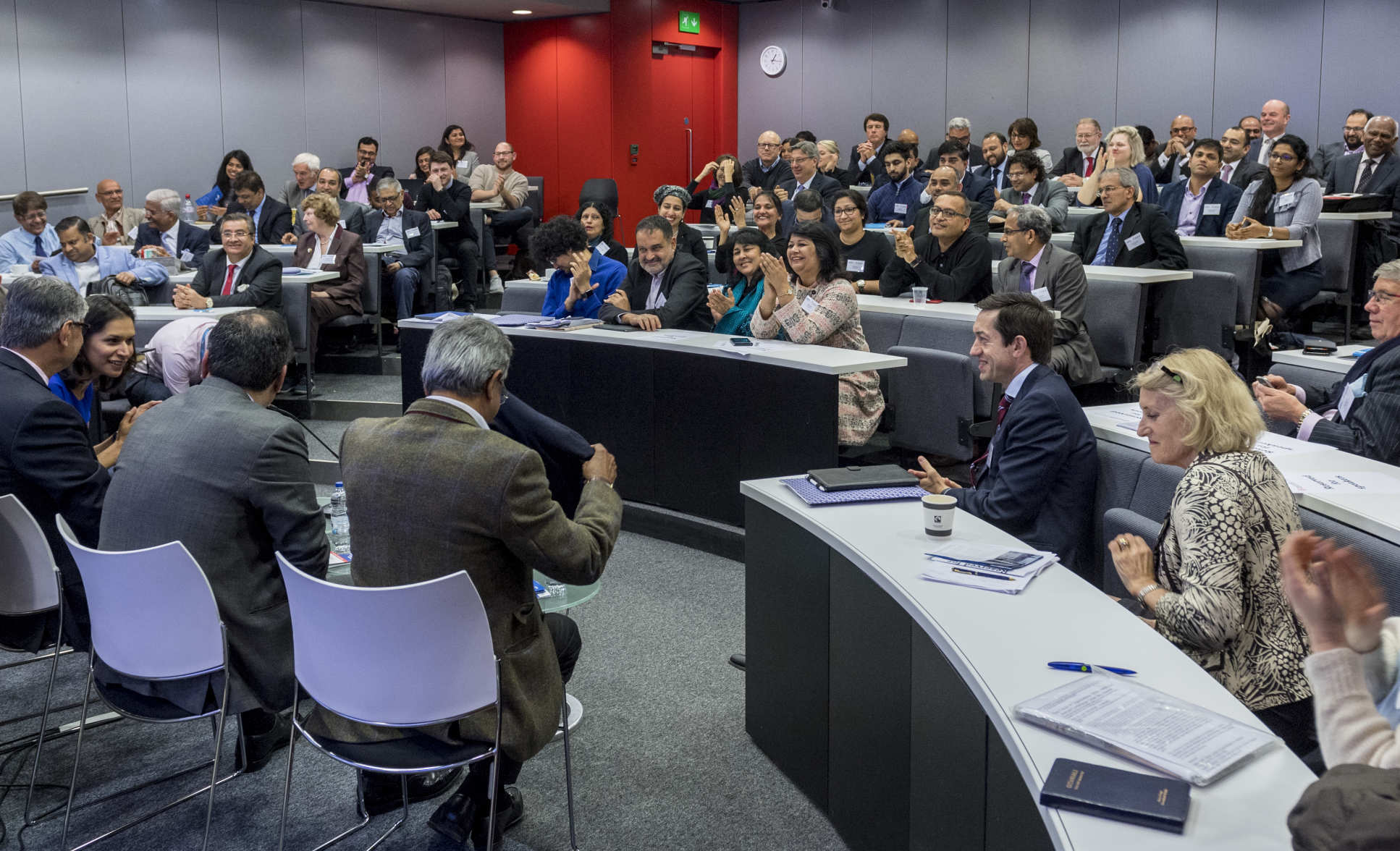 Imperial alumnus and chairman of Nicco Group Rajive Kaul drew on his experience utilising technological solutions, including cloud computing, AI and VR to offer richer consumer experiences as well as manage a smarter business.
Imperial alumnus and chairman of Nicco Group Rajive Kaul drew on his experience utilising technological solutions, including cloud computing, AI and VR to offer richer consumer experiences as well as manage a smarter business.
Professor Nelson Phillips, Abu Dhabi Chamber Chair in Innovation and Strategy at Imperial College Business School, discussed the forces of globalisation – as represented by France’s President Macron engaging President Trump on trade – and the sense that “they are in retreat with populist movements emerging” and taking advantage of technologies like social media.
Article text (excluding photos or graphics) © Imperial College London.
Photos and graphics subject to third party copyright used with permission or © Imperial College London.
Reporter
Stephen Johns
Communications Division